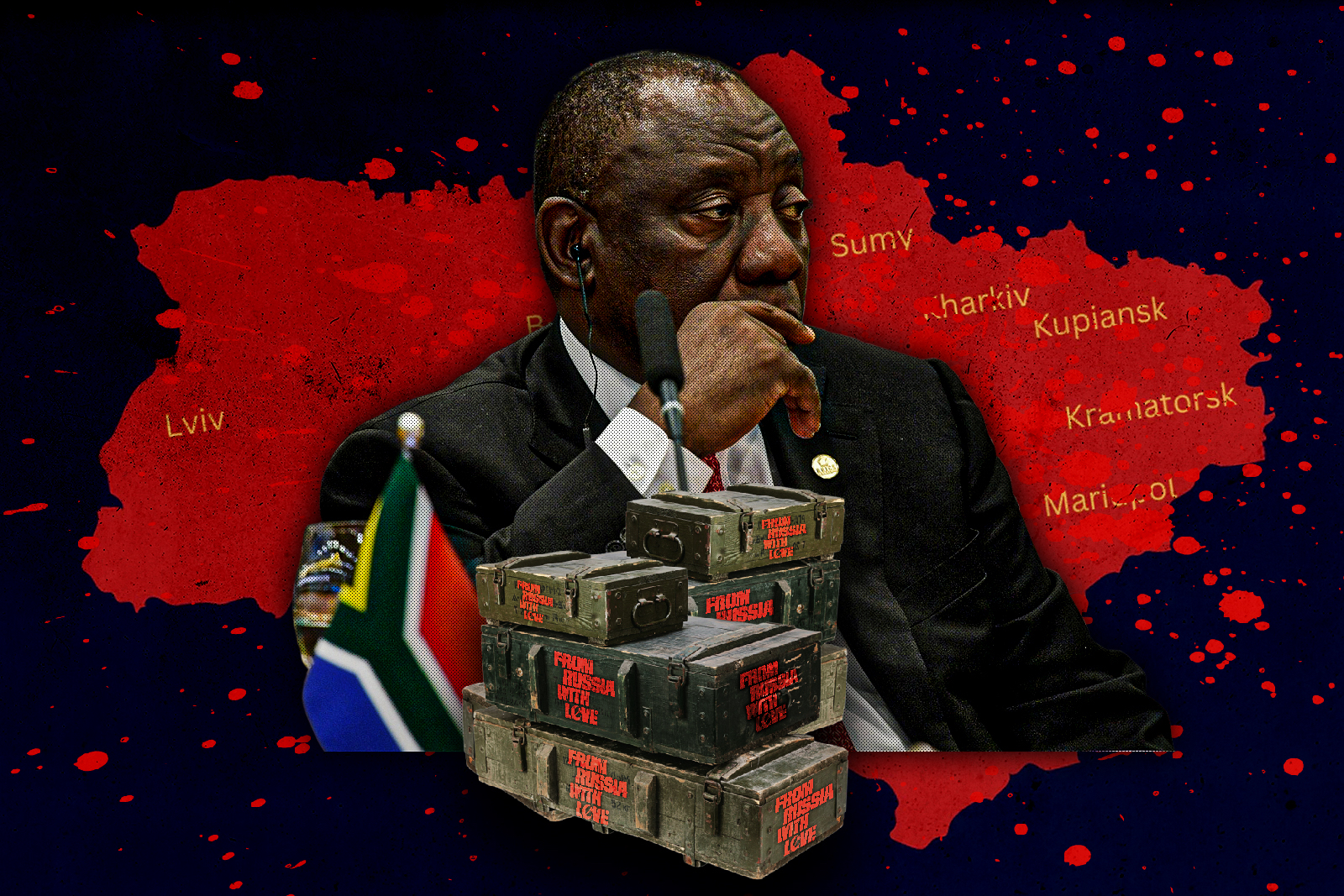
Why is ‘Neutral’ South Africa Providing Arms to Russia?
South Africa continues to claim that it is neutral with regard to the war in Ukraine, but recent events suggest otherwise. Last week, Reuben Brigety, the United States ambassador to South Africa, said that the U.S. believes that weapons and ammunition had been loaded onto a Russian freighter that docked in Cape Town in December.
“We (the U.S.) are confident that weapons were loaded into that vessel, and I would bet my life on the accuracy of that assertion,” Brigety said during a press conference. He went on to say that South Africa’s arming of Russia was “fundamentally unacceptable.”
South African officials swiftly rejected Brigety’s claims. South African President Cyril Ramaphosa said an investigation into the visit by the Russian vessel was already underway with the help of U.S. intelligence officials.
South Africa has declined to denounce Russia’s unprovoked invasion of Ukraine, a move that has resulted in Moscow’s widespread isolation. South Africa’s supposedly neutral stance means it also favors dialogue as a means to resolve the conflict. In a controversial move earlier this year, South Africa conducted a joint military exercise with Russia and China. Some critics interpret this as a sign of an alignment towards the Kremlin.
Perhaps not the best timing given the circumstances, Lieutenant-General Lawrence Mbatha, the head of the South African Army, recently paid a visit to Moscow in what appears to be an effort to coordinate messaging between the two countries.
But the South African officials said that the meeting was “planned well in advance” as part of “a long-standing arrangement” and was a “goodwill visit” at the invitation of the Russian military.
In a statement published on Twitter, the country’s military said it “confirms that the Chief of the SA Army, Lieutenant-General Lawrence Mbatha, is in Moscow for a bilateral between the two military establishments.”
“It must be noted that South Africa has military-to-military bilateral relations with various countries in the continent and beyond,” the military said. “[Its military] receives numerous military delegations into the country and sends its own delegations to other countries to discuss matters of mutual interest.”
Pretoria has ties with Moscow dating back decades when the Kremlin supported the African National Congress in its struggle against apartheid. Following the end of apartheid and the transition to democracy in the early 1990s, South Africa’s relations with Moscow underwent a transition. With the collapse of the Soviet Union and the subsequent dissolution of the Eastern Bloc, South Africa shifted its foreign policy focus to engage with the global community and build new relationships.
Since the 1990s, South Africa’s relations with Moscow have evolved into a more conventional diplomatic partnership. The two countries have maintained diplomatic ties and engaged in bilateral cooperation on various fronts, including trade, investment, and cultural exchanges. However, the level of engagement between South Africa and Russia has been relatively minor compared to the close ties witnessed during the struggle against apartheid.
In recent years, there has been renewed interest in strengthening the relationship between South Africa and Russia. This has been evident in various areas, including defense cooperation, energy partnerships, and diplomatic exchanges. It is likely that the extent and nature of the current relationship between the two countries is shaped by a multitude of factors, including Pretoria’s broader foreign policy priorities and global geopolitical dynamics.
The situation could get even more complicated in the months ahead. The International Criminal Court has issued an arrest warrant for Russian President Vladimir Putin based on accusations that Russia kidnapped Ukrainian children in territory that it captured. And with the Russian president scheduled to attend the BRICS summit in South Africa in August, will Pretoria be required to arrest its own ally?
Ramaphosa said during a state visit by Namibian President Hage Geingob in April the matter was still under consideration. “We are waiting for all the BRICS members to indicate whether they are coming.”
One workaround would be for South Africa to leave the ICC. No longer a member state, it would not be subject to the ICC ruling to arrest Putin. However, Pretoria has so far rejected the idea put forth by Ramaphosa and even went to great lengths to correct his statement. His office cited a communication “error” from the ruling African National Congress. “The presidency wishes to clarify that South Africa remains a signatory to the Rome Statute…This clarification follows an error in a comment made during a media briefing held by the governing [African National Congress].”
Additionally, a decision to leave the ICC, which would only require a majority in the cabinet is still a lengthy process and would unlikely be completed before August.
Ignoring the international pressure it is under to side with Ukraine, South Africa’s leadership has made the decision to stand by Putin and not jeopardize the relationship it has built up with Moscow over the last few decades. With numerous factors and interests in play, South Africa is unlikely to switch sides and support Ukraine against one of its greatest allies.

